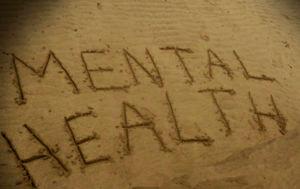

…Says country operating without legislation for too long
…Over 90% of Nigerians lack access to mental health care
…1 psychiatrist serves 1 million population
Mental health regulatory reforms have languished in Nigeria’s legislative chambers for almost two decades, with failed attempts at overhaul in 2003 and 2013. In 2019, the mental health legislation was again advanced, with the Senate passing it for second reading and holding public hearings in 2020.
While harmonisation of the Bill was concluded between both legislative branches in 2021, mental health practitioners and advocates have been waiting anxiously its finalization and assent by President Mohammadu Buhari.
On the 28th of November, 2022, the National Assembly passed the National Mental Health Bill, 2021, and forwarded it to President Buhari for consideration and assent last week, according to a memorandum by the Clerk to the National Assembly.
Good Health Weekly sought the views of the President of the Association of Psychiatrists in Nigeria, Prof. Taiwo Obindo – a body of psychiatrists in Nigeria that has been at the forefront of ensuring that the Bill is passed and signed into law.
Obindo, in this interview with Chioma Obinna, opines that the legislation is a breakthrough as Nigeria has never passed such a law since its independence. Excerpts:
“We thank the National Assembly for advancing this Bill to the Presidency and appreciate the many legislatures involved in making this happen, including the Chairs of the House Healthcare Services Committee and Senate Health Committee, Rep. Dr. Sununu, and Senator Dr. Ibrahim Oloreigbe.
Representatives Henry Nwawuba, Francis Waive, and Uchechukwu Nnam-Obi, along with others, have also been instrumental. We hope they and their colleagues continue to support mental health advocacy and Executive assent.”
The proposed legislation will help replace the Lunacy Act of 1958, which practitioners condemn as outdated and inhumane. Some provisions of the National Mental Health Bill include creating a Department of Mental Health Services in the Federal Ministry of Health and a Mental Health Fund.
It will also help to establish human rights protections for those with mental health conditions, such as banning discrimination in housing, employment, medical, and other social services. Improving care by guaranteeing those receiving treatments have the right to participate in formulating their medical plans and eliminating forced treatment, seclusion, and other methods of restraint in facilities, additionally, expanding community-based coverage.
Al the CSOs and associations working in mental health have come together to promote the passage of the Bill and help advance the country’s mental health field under the umbrella, Nigerian Mental Health, a network of mental health stakeholders, thought leaders, and organisations.
Collectively, it has coordinated an Open Letter that over 30 mental health-focused organisations, including all four professional bodies in the field – the Association of Psychiatrists in Nigeria, the National Association of Clinical Psychologists, the Association of Medical Social Workers of Nigeria, and the Association of Psychiatric Nurses of Nigeria – signed to government leaders encouraging adoption of the National Mental Health Bill.
What the Bill is set to achieve
The Mental Health Bill addresses the way and manner mentally ill populations are to be catered for without stigma or discrimination.
The Bill draws from global best practices in enshrining the human right of the mentally ill, how care can be accessed, and outlawing chaining or other forms of coercion. The Bill also describes how to find their care and generally makes the practice of mental health compared to what is obtained in other climes including Ghana.
More benefits
The Bill, among other benefits, will help in making access to care for the mentally ill easier and ensuring that the human rights of the mentally ill are enforced. It will also help in regulating the activities of mental health practitioners and eliminates stigma and discrimination.
It will also help in addressing the issue of funding for mental health care in Nigeria. We are happy it has been transmitted to the Presidency for assent after due diligence by the National Assembly. The Presidency needs to do so within 90 days.
Beyond sounding like a broken record, Mental Health is neglected and the state of things is abysmally poor and access to care is low because of stigma and discrimination, people hardly access care from the formal sector.
Mental health gap
Today, in Nigeria, less than 10 percent of those who need care actually access care with over 90 percent not doing so. The ratio of mental health practitioners to patients is very low. For instance, we have one psychiatrist to close to a million (1:1 million) Nigerians at risk while the WHO recommendation talks about 1:1000. With the brain drain, the situation is actually getting worse and funding is largely out of pocket.
Expectations
If signed into law, the Bill will provide good governance of the mental health system, better services by the practitioners, adequate care for those with mental health conditions, human rights of the mentally ill, elimination or significant reduction of stigma and discrimination, and adequate funding.
Speedy assent desired
The Bill is long overdue. Nigeria has operated without legislation in this space for too long. No law since independence saves the regional (Lagos) law of 1958 called Lunacy Act.
President Buhari has 90 days to assent to it and the clock started since transmission to the Presidency on the 28th of November 2022. This effort has been on for more than two decades. It started in 1999 with the late Senator Dr Martins Yellow and all efforts have not been successful. We cannot afford to remain backward amongst the Committee of Nations. Ghana has one operational for many years.
What will happen if Buhari does not assent in 90 days
The Bill will go back to the house of Assembly. The President should kindly bequeath on Nigeria and Nigerians, as his parting gift, a modern, globally-acceptable, humane, and decent law to regulate mental health practice.
A law that improves access & funding, reduce stigma & discrimination, regulate the practice, remove unwholesome practices by charlatans such as chaining and beating, and respects the human right of those living with mental illness. It is their right to access healthcare and live to achieve their goals in life.
It is not envisaged that he will not assent to the bill as this is long overdue and is really needed.
If not assented to, it will surely be a big disappointment to all mental health practitioners, stakeholders, and the world in general. The world expects more from the giant of Africa. If not, we will go back to the drawing board and restart the process.
APN involvement
After assent, we will collaborate with the Ministry of Health, mental health practitioners, and other stakeholders to implement and enforce good practices. Before assent, we will continue to increase awareness and advocacy toward the President assenting to the bill.
The post Assent to Mental Health Bill now, Obindo tasks Buhari appeared first on Vanguard News.





